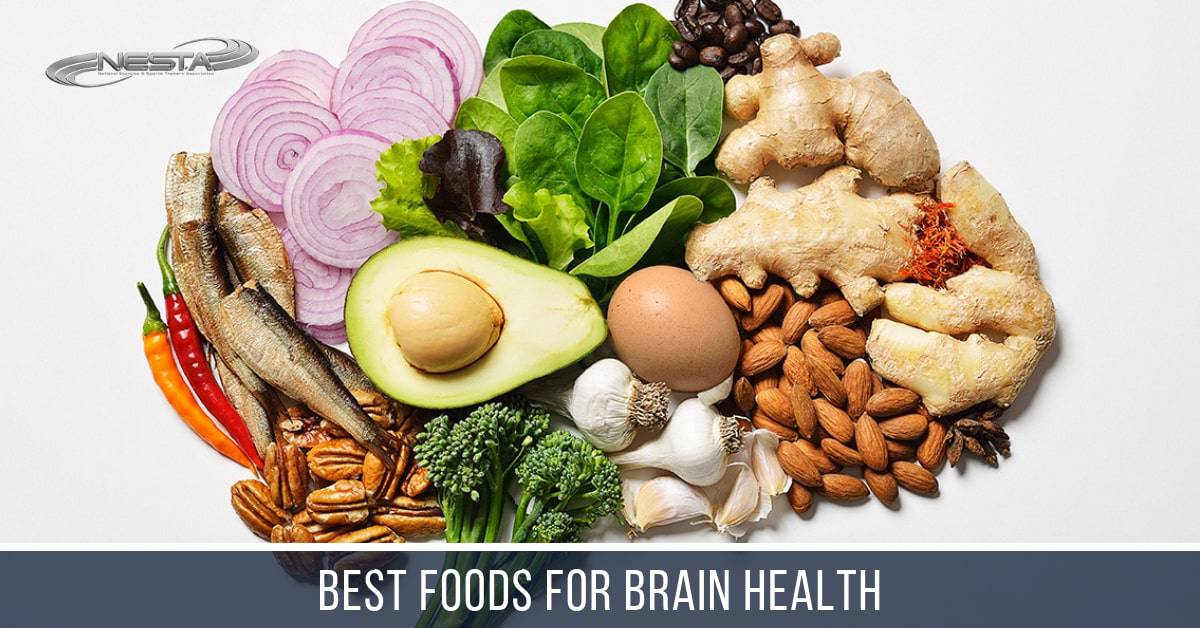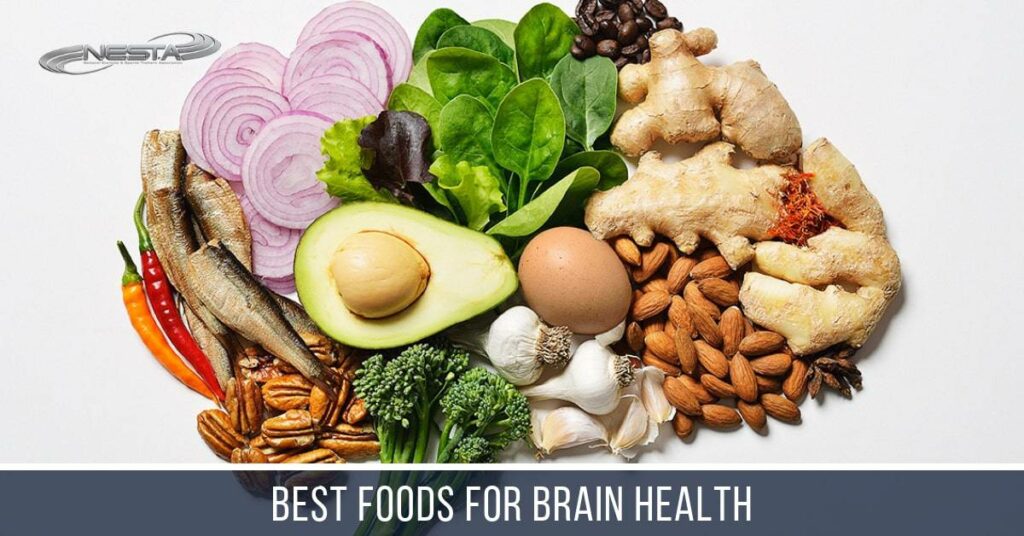 In the 21st century, a person is more probable to get ill or even die of a brain disease than from any infection. CDC data clearly shows that in the US Alzheimer’s disease is among the top 10 causes of death annually.
In the 21st century, a person is more probable to get ill or even die of a brain disease than from any infection. CDC data clearly shows that in the US Alzheimer’s disease is among the top 10 causes of death annually.
However, morbidity and mortality caused by an Alzheimer’s is just the tip of an iceberg. About 5.3 people are living with Alzheimer’s, and 2.2 with other types of dementia. Further, epidemic studies show that close to 100 million people in the US are living with one or another kind of neurological condition. Yes, that is almost one-fourth of the population. At present, there are more than 1000 known neurological diseases, some quite common and others are rare.
The situation is made worse by the fact that many brain conditions are still not regarded as a disease, and very little is known about these conditions like chronic fatigue syndrome, fibromyalgia, and so on.
It is also important to understand that poor brain health does not lead only to neurological diseases. Poor brain nutrition is related to a higher incidence of psychiatric problems, mood disorders, psychological issues. Even some of the physical ailments are the result of inferior brain health and nutrition.
What is worrisome is the lack of drugs to treat brain diseases. The vast majority of neurological disorders can be managed with medications, but cannot be treated. For some brain diseases, there is not a single drug that can help, like no drug is known to prevent Alzheimer’s. Therefore, in the case of brain diseases prevention is the best strategy and food is the best medicine.
It is also essential to understand the difference between health and wellbeing. A healthy person may still feel bad and unwell, and one of the most important reasons for feeling unwell is poor brain health. It means that food that is good from the brain may improve your feeling of wellbeing and thus helping stay physically healthy.
Best foods for brain health
Although there are very few medication drugs that help improve brain health, there are numerous lifestyle changes, food items, and nutrients that can help improve cognition, neuroplasticity, and thus help avert the development of brain diseases. Below are some of the foods to include in your daily diet.
Omega-3 – There is a reason why this nutrient is at the number one place; it is one of the most well researched of all the nutrient for brain and heart health. Diet of early humans was rich in non-farmed meat, fish, and nuts, and thus was naturally high in omega-3.
However, the modern human diet has low omega-3, and high omega-6 levels, which results in low-level inflammation. Omega-3 also helps improve blood flow by reducing platelet aggregation. It also reduces the levels of bad cholesterol in the blood.
Omega-3 helps maintain brain structures. An omega-3 fatty acid found in fish is especially suitable for the brain as it is high in DHA. Omega-3 fatty acids make up almost one-fourth part of all the fats found in the brain, and among them, DHA is the most abundant.
Increasing DHA intake by consuming omega-3 high food items may help improve memory, cognition, reaction times. It may help slow down brain aging.
Regular high consumption of omega-3 results in better mood and emotional stability; it means that omega-3 may help prevent depression, may improve sleep quality.
Fatty fish and various seafood items like oysters, caviar are the best omega-3 sources. For vegans, good sources could be chia seeds, hemp seeds, walnuts, kidney beans, soybean oil, to name the few. So, do your own research a bit into the food items rich in omega-3, and include them in your daily diet.
Resveratrol – is especially rich in berries, dark grapes, red wine, chocolate, and peanuts. In recent years this potent anti-oxidant has received lots of attention. There is some research that suggests that it not only protect body cells from harm, but it may also even help improve brain health, memory, thinking ability, and mood. It can help slow down the age-related decline in cognition. It may help slow down the progress of neurodegenerative diseases. It may be used as an adjunct in the treatment of various neurological conditions.
Caffeine –is perhaps the most commonly used psychostimulant of natural origin whether knowingly or unknowingly. It is in abundance in tea and coffee. That is why many people who do a lot of mental work, or individuals working in offices get addicted to these drinks. Good news is that in moderation tea or coffee aren’t bad; these drinks can somewhat help stimulate the nervous system, make you more alert, improve your mental ability. There is emerging evidence that caffeine may help reduce the risk of certain neurological diseases over time. The only thing to remember is that overconsumption of caffeine can be counterproductive.
Phosphatidylserine– is a kind of phospholipid found in the human cell wall and is thought to be necessary for cell signaling. Thus, it is regarded as essential for brain health. It can be produced by our body; however, supplementing it with food sources may help preserve brain functions better.
Dietary phosphatidylserine is not easy to get for vegans as it is in abundance in only animal-based products. Most meat products, organ meats, fish, seafood, have it in large quantities. It is found in small amount in dairy products. Unpolished rice, whole grain barley, carrot, and potato are some of the vegan sources, though the amount of phosphatidylserine is quite small in non-animal food items.
Adequate phosphatidylserine intake may help preserve brain function, thinking ability, and memory.
Acetyl-L-Carnitine – it is one of the amino acids frequently used by bodybuilders or even casual gym goers as it is known to help build muscles, energize the body, improve fat metabolism, and help burn fat.
It is necessary for converting fats into an energy source. It means that it improves cellular energy, mitochondrial health.
Since the brain is so much dependent on fat metabolism too, thus it seems that acetyl-l-carnitine may help improve learning ability, memory. It may also help fight brain aging. There is some evidence that it can help prevent or reduce the progress of neurodegenerative disorders.
Acetyl-l-carnitine is good for peripheral nerves too. Thus it may help with neuropathies. It may help in diabetes by improving fat metabolism. It is suitable for heart health. It is also known to enhance fertility or sperm motility in men.
Although acetyl-l-carnitine deficiency is not possible as the human body can produce it as much as needed, but increasing dietary intake or supplementing it may give that badly needed boost to brain health. It is also worth noticing that its deficiency may occur in chronically ill people, or those weakened by some other factors.
Beef, milk products, chicken breast, various types of cheese are abundant in it. It is also found in whole wheat bread. Finding vegan sources of acetyl-l-carnitine is a challenge. Thus those seeking to improve brain health, heart health, and fertility may look for supplements.
Ginkgo Biloba – when we discuss foods for brain and memory improvement, no discussion can be complete without ginkgo biloba. It is the most widely sold nutraceutical or food supplement in the US for improving brain functions. But this does not mean that it is not a food item. In China, Japan, Thailand, and other countries of that regions, various parts of ginkgo biloba tree are used as food products, they are added to various food items, desserts, drinks, and so on.
It is one of the oldest surviving tree varieties on earth. It is also one of the longest living trees, with some trees in China and Japan are thought to be as old as 2-3000 years. It readily grows in the US too, though varieties grown in the US may differ a bit. It is quite a tall and big tree that often reaches up to 50 meters or more. Another interesting fact about the ginkgo biloba tree is that they have gender, it means that there are separate male and female trees.
This, one of the oldest, and most fascinating trees is a symbol of longevity in East Asia. Its leaf extracts are thought to help the brain stay healthy, improve memory, and cognitive functioning. There is some evidence that it may help prevent neurodegenerative diseases like Alzheimer’s. It is also used to treat hypertension, peripheral arterial disease, tinnitus, macular degeneration. It may also help recover faster from the debilitating effects of stroke.
In the US food supplements are the best way to get benefits from it, as in the US and Europe it does not have any culinary value or known use.
Creatine – is quite like acetyl-l-carnitine, creatine in an organic compound that plays a vital role in cellular energy production. It is an essential compound for the recycling of ATP. So theoretically, its higher intake can boost the energy level of cells, and various organs. It is in abundance in the skeletal muscles and is also found quite a lot in the brain – both these organs are energy hungry.
It is among the most frequently used supplement by those building muscles, and it is proven to improve exercise tolerance, build stamina, help recover body faster. In recent years it has gained importance as food for the brain. Some studies indicate that increasing its intake may help improve learning ability and memory.
Creatine is primarily found in animal products that is meat, fish, chicken, and so on. Dairy products may have a small amount of it. However, it does not mean that vegans are deficient in it. Human liver can produce it in sufficient quantity; all that vegans have to do is consume enough of proteins, as creatinine is manufactured in the liver by using other amino acids as a raw material.
However, those looking to boost memory and brain health, supplementation may be a good option as creatinine supplements are not very expensive.
Whole grains – in the era of processed grains it is now well understood that whole grains have many useful things that are lost during processing. Whole grains are rich in dietary fiber which helps reduce levels of bad cholesterol, prevent vascular diseases, keeps heart and brain healthy. Dietary fibers in whole grains also have a positive impact on the intestinal flora, thus further contributing to brain health. Huge variety of microminerals and vitamins in whole grains also contribute to brain health.
Turmeric – it is what gives curry powder it’s typical yellow color. The main ingredient of turmeric is a yellow substance called curcumin. In recent years, turmeric has become the most researched herb or spice. There are more than ten thousand research articles written on turmeric and curcumin to date.
Curcumin is a powerful antioxidant that can cross the blood-brain barrier. Thus, unlike other natural antioxidants, it also helps protect the brain. Curcumin also acts on brain cells; it helps reduce depression, improves sleep quality and has a positive effect on memory.
In modern medicine, there are no drugs that can prevent brain diseases. Even medications that can help in brain conditions like antidepressants, they are highly toxic and may do more damage in the long run. Therefore, making dietary and lifestyle changes is the only way to at least delay the onset of brain disorders if not prevent them altogether.
So, for a healthy brain, eat lots of foods that have a direct beneficial effect on the mind. To get maximum benefit from such food items do not forget to exercise regularly, practice mindfulness, and have enough sleep. Reading and learning new things all the time may also help keep the brain exercised and active.
Socializing is another helpful way to keep the brain healthy and increase neuroplasticity. Those living in larger families, or those having many friends are much less likely to develop brain diseases when compared to people living a lonely life.
To keep your brain well, eat and sleep well, socialize a lot, read and learn, stay active and do exercise, and do not forget to add good foods to your daily diet.
Brain Fitness Coaching
If you are new to the coaching/training industry, you are discovering that people who have improved brain function and performance are better able to follow directions, implement plans and stay the course. If you are experienced in this field, you’ve seen this for years. Now, you have the opportunity to gain a high-level credential, extensive experience, and a coaching model to dramatically increase your clients’ brain function and power.
It’s time for you to step into your brilliance and show your clients and the world that you are serious about creating world-class results for those who hire you!
As a Certified Brain Fitness Coach, you will command top dollar for your coaching.
There is always something exciting about earning a new certification and applying that new knowledge of how you train your clients. This also helps you hit the reset button.
Our programs are open to anyone with a desire to learn and help others. There are no prerequisites.
That’s it for now.
Take action!
PS: Click here to see many helpful business/career resources






